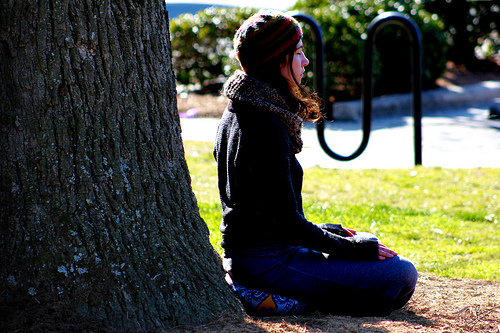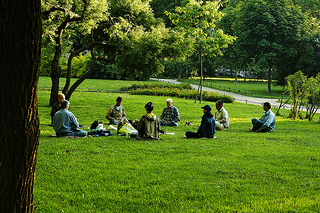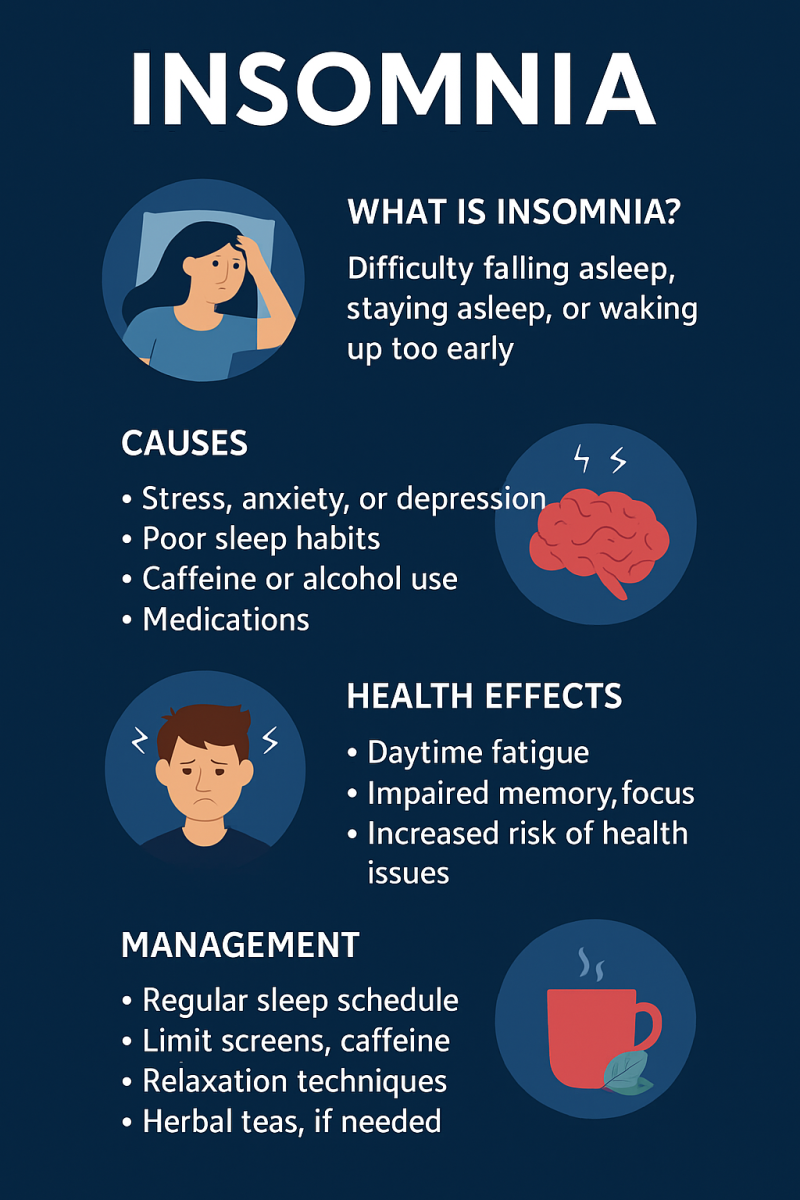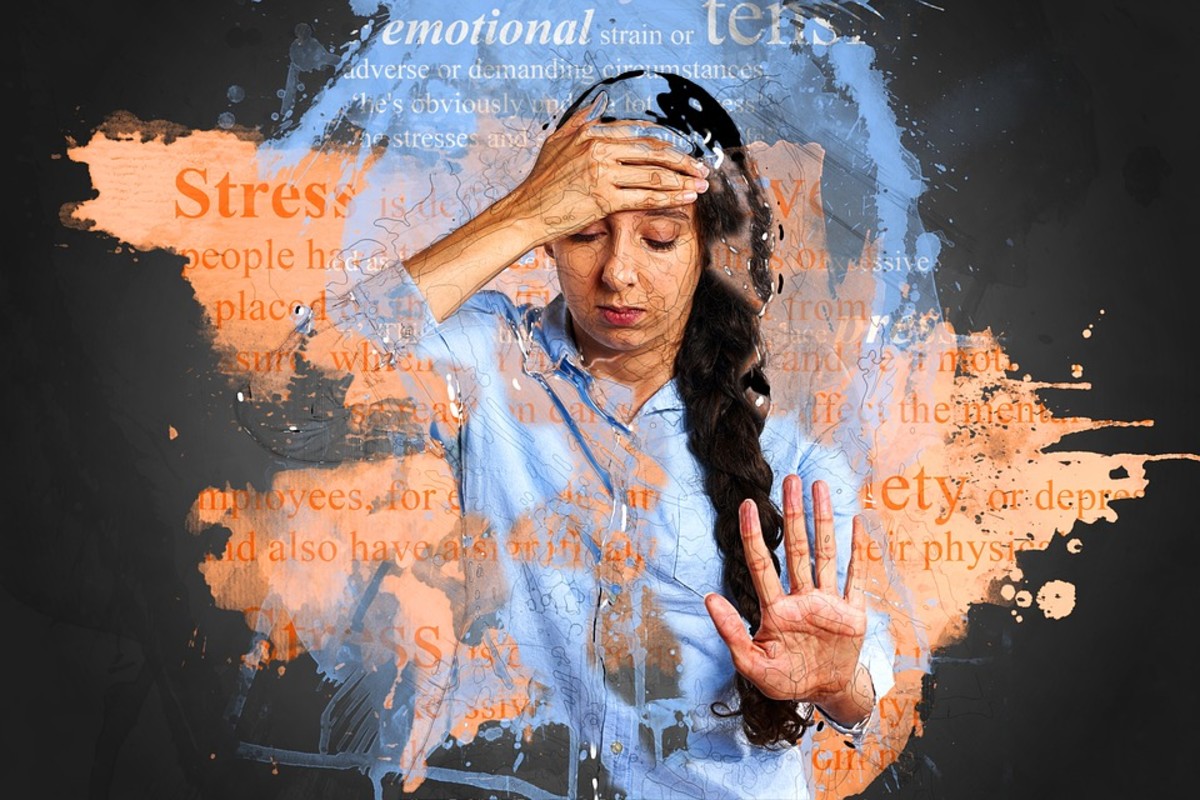The Benefits of Meditation for Stress Relief


Meditation for Relaxation and Stress Relief
Our lives are chaotic. We are constantly being bombarded with stimulation in various forms, whether it be at work, at home or even during leisure activities. All of this external stimulation, in addition to how we react to it, serves to cause feelings of anxiety, of being "stressed out."
What better way to relax and relieve tension and stress than to put aside the world around you for some moments of quiet reflection?
Have you ever tried meditation?
If you've tried meditation, would you suggest it to others for relief of stress?
What Is Meditation?
Meditation is a state of thoughtless awareness, a way to a relaxed state of mind by putting aside thoughts and feelings and focusing on self, on one's own consciousness. Meditation is a mind-body type of complementary medicine, in the same classification as yoga and tai chi. Meditation is a mental discipline.
"Thoughtless awareness" may sound like an oxymoron, but the term means to develop an awareness of yourself, your consciousness, by filtering out thoughts. Some people are able to quiet their thoughts completely after some practice of meditation techniques, but many more people are able to filter out most of their conscious thoughts after a time.
In order to achieve a feeling of calm, a lessening of anxiety and tension, the most important thoughts to be able to filter are those which have caused your feeling of stress. For example, if your boss has been hounding you to reach a deadline and you feel as if your head may explode, take a few moments to meditate, to filter out the boss's voice, to filter out concerns for the deadline. After even a few minutes of this, in addition to some slow, deep breathing, you may well feel more relaxed and better able to meet your goal when you return to your conscious thoughts.
Explanation of What Meditation Really Is
Busting the Myths About Meditation
Common Meditation Myths
| Meditation Facts
|
|---|---|
You have to dress a certain way
| You can dress any way you like. Being able to be comfortable is what is important
|
You have to sit a certain way
| You can sit, lie or assume any position that allows you to be comfortable
|
Meditation takes a long time
| Meditation can provide stress-relieving benefits in short periods of time, say 5 to 10 minute sessions, or a longer session may be used when time allows
|
You have to take a class to learn to meditate
| The main concepts of meditation don't require training from an expert. There are many resources online and in book form that will provide the information you need to be successful.
|
Meditation is a certain religion
| Meditation is not a concept of any one religion, but a method to relieve tension and anxiety. There need be no spiritual overtones to the practice.
|
Meditation is for hippies or yuppies or nerds or any other particular group
| Meditation is a method of achieving calmness that requires no special skills or mindset. It is truly a method for the masses.
|
Meditation to Relieve Anxiety and Stress
A study conducted by Harvard Medical School and affiliated researchers demonstrated that after an eight-week meditation course, the brains of study participants physically changed. The areas of the brain associated with self-awareness and compassion had grown larger, and the area associated with stress had become smaller.
The importance that portion of the brain associated with stress becoming smaller is important in two ways: The now-smaller portion may mean improved mental and emotional responses to stress in your life and improvement in physical health.
Physical health would improve because with less stress, less anxiety and more calmness in your mind, the autonomic "fight or flight" response will occur less often. This response releases adrenalin that acts on your blood vessels, causing an increase in blood pressure and reduced circulation to your heart. High blood pressure is known as the silent killer; it can result in heart attacks and stroke, even kidney failure.
Slowing down, taking the time to meditate, to filter out conscious thoughts, can produce important, even life-saving benefits, as well as contributing to your peace of mind.
Additional benefits associated with meditation include:
- Gaining skills for stress management
- Reducing negative emotions
- Focusing on the present, staying in the moment
- Allows development of new perspectives in stress management
How to Meditate Part 1 of 2
Meditation Helps in Overcoming Anxiety

How to Meditate Part 2 of 2
What Other Benefits Does Meditation Have?
Meditation is an ancient practice, one that predates organized religion, but traditional Western medicine has been slower to approve and use meditation than its eastern counterparts. Western medicine requires scientific proof of not only benefits of a practice, but also any potential harmful effects.
As more research is completed, more traditional health care providers are suggesting the use of meditation to their patients. The research into meditation and its effects on the brain may even lead to improved understanding of such conditions as autism and schizophrenia, as researchers at Yale suggest.
Because our bodies are sets of systems all interlinked, anxiety and other negative emotions can adversely affect other body systems as we see from the correlation with high blood pressure. Other body systems can also be affected by ongoing stress, such as a weakening of our immune systems, leaving us more vulnerable to illness and infection, or the gastrointestinal system that may cause your stomach to produce excess acid, or have difficulty properly digesting food, or affect bowel habits.
While meditation is not the only practice that can help you to relieve stress and filter out negative emotions, it is a practice that you can do just about any time and any where, making it a no-cost method of achieving that inner calm you deserve.
Some of the Many Shambhala Meditation Centers Nationwide
Shambhala Mountain Center welcomes all people with inspiration, interest and curiosity about understanding the nature of self and society.
Want to Learn More about Meditation? Here Is Some Suggested Reading...
- List of 10 Different Types of Meditation to Try
Have you tried meditation only to feel like it wasn’t for you? Try a different type of meditation such as music meditation, walking meditation or eating meditation. - Focused Meditation Ideas for Stress Relief
Learn how to do Focused Meditation for stress relief in five easy steps. You will be amazed at how easy it is to achieve relaxation without spending a penny. - The Side Effects of Meditation and You
Can meditation be harmful? Surprisingly, there are some negative side effects to meditation. There are also effective ways to confront these negative side effects. - How I use Mindfulness Meditation for Anxiety
- How to Motivate Yourself to Meditate
Looking for Other Methods of Stress Relief?
- What is Progressive Muscle Relaxation (PMR)?
Progressive Muscle Relaxation is a simple and effective technique for relaxing tense muscles, reducing stress and alleviating anxiety. - 10 Ways to De-Stress Yourself in 10 Minutes or Less
- Reduce Stress & Anxiety - How to Relieve Them with Good Nutrition
When you are stressed and anxious, your body reacts primitively and focuses on survival and not necessarily on making sure your immune system is supported. Unfortunately, the longer amount of time that you and your body are stressed, the worse off yo - How to Use Color Therapy to Relieve Stress
- How Massage Therapy Helps to Relieve Stress









